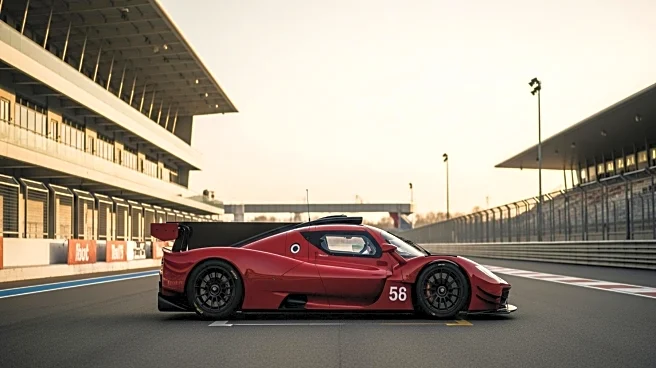What's Happening?
Ferrari's performance at the Dutch Grand Prix has been notably poor, with Charles Leclerc describing it as the worst Friday of the season. Leclerc struggled to keep up with the leading McLarens, trailing by nearly a second. The team is facing difficulties, particularly in two corners where they are losing significant time. Despite a surprise pole position in Hungary, Leclerc's pace at Zandvoort was disappointing, as he set the eighth fastest time in Free Practice 2, trailing Lando Norris by 0.944 seconds. Leclerc expressed uncertainty about setting targets for the weekend, citing the unpredictability of the season.
Why It's Important?
The struggles faced by Ferrari at the Dutch Grand Prix highlight ongoing challenges for the team in maintaining competitive performance in the Formula 1 season. This situation could impact Ferrari's standings and reputation in the sport, as consistent underperformance may lead to strategic reassessments. The lack of pace compared to competitors like McLaren could affect Ferrari's ability to secure favorable positions in upcoming races, potentially influencing sponsorships and partnerships. The team's performance is crucial for maintaining its legacy and fan base, and continued difficulties could lead to broader implications for its future in Formula 1.
What's Next?
Ferrari will need to address the issues identified by Leclerc, particularly the time lost in specific corners, to improve their performance in future races. The team may consider adjustments to their car setup or strategy to enhance competitiveness. Stakeholders, including team management and engineers, are likely to focus on analyzing data from the Dutch Grand Prix to identify solutions. The upcoming races will be critical for Ferrari to demonstrate improvements and regain momentum in the championship standings.
Beyond the Headlines
The challenges faced by Ferrari at the Dutch Grand Prix may prompt discussions about the team's long-term strategy and development approach. Ethical considerations regarding team dynamics and resource allocation could arise, as Ferrari seeks to balance immediate performance improvements with sustainable growth. The cultural impact of Ferrari's performance on its fan base and the broader motorsport community may also be significant, influencing perceptions of the team's legacy and future prospects.









